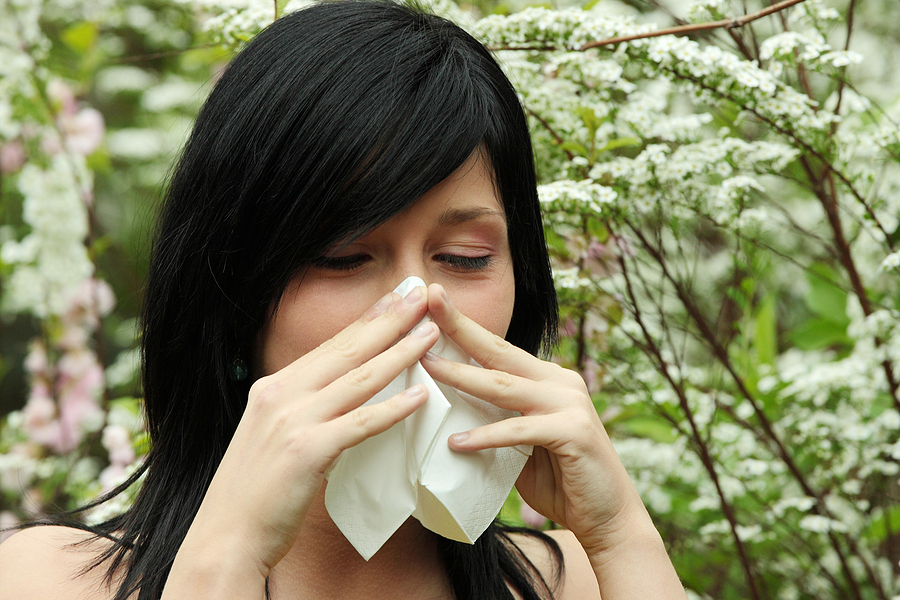Treating Allergies Without Needles- Suggestions from a California Allergist
Posted By:SSG Admin Posted On:10-Jun-2024
Over 100 million Americans have allergies. A large portion of those allergies are seasonal pollen allergies to things like grass, tree, and weed pollens. For many people, seasonal allergies cause a runny, stuffy nose, red, watery eyes, and sneezing. Others have severe reactions that include trigger asthma attacks.
The 20 most challenging areas for people with allergies aren’t in California, thankfully. Many are in the Southern U.S. from Eastern Texas to the East Coast. That doesn’t mean that Californians are safe from allergies.
The first city in California that’s ranked highest for allergy sufferers is San Diego at #38. Fresno comes in at #78 and has a score of 70.25 out of 100. This score factors the types of pollen, number of days pollen counts are “high” or “very high,” and accessibility to allergy specialists.
What Causes Allergies?
Allergies are the immune system’s reaction to allergens like dust mites, foods, mold/mildew spores, and pollen. The irritants get into the sinuses and trigger inflammation that can trigger a runny nose, but they’re also irritating so you sneeze frequently. The irritated sinuses swell slightly causing nasal congestion. You might also find your skin is itchy and irritated.
You’re uncomfortable, so it’s hard to focus on work or school lessons. You can’t stop sneezing, which distracts others. Allergies are not fun. For that reason, some people look for long-term solutions to allergies.
Some people experience asthma attacks due to their seasonal allergies. Allergic asthma affects about 20 million people in the U.S. For someone with allergic asthma, running up a flight of stairs can leave them feeling breathless. Not everyone realizes allergic asthma is the most common form of asthma.
The Problems With Allergy Shots
Subcutaneous allergy shots get injected just below the skin, which gives your body time to slowly develop a resistance to the allergen. It takes weeks of shots, but you get up to five years of relief from allergies. They’re great, but they’re not for everyone.
Allergy shots are not recommended for people taking medications like beta-blockers for heart conditions, high blood pressure, or anxiety. They are also not recommended for people with asthma. If you have a phobia of needles, allergy shots may not be appealing.
Allergy Relief That Doesn’t Involve Needles
If you can’t deal with needles or allergy shots are not advised for you, what are your options? Many use allergy medications, but over-the-counter medications aren’t enough. You may need prescription medications. An assessment by an allergy doctor can help you determine the best one. Options include:
- Antihistamines – Can trigger drowsiness, so it’s recommended you don’t drive a car or operate machinery. They are also not good for all patients, especially those with heart disease, high blood pressure, and kidney disease.
- Corticosteroids – This medication is often a prescription from your doctor. They can be inhaled or oral medications.
- Nasal sprays – They help ease sinus congestion, but they shouldn’t be used for more than a few days. They can also impact blood pressure.
While many medications are not advised for people with heart disease or high blood pressure, it’s not hopeless. Your allergy doctor can point you to safer options like Budesonide, Fluticasone, or Mometasone.
Sublingual Immunotherapy (SLIT) is an increasingly popular treatment option. Small amounts of the allergen are placed under the tongue in the form of liquid drops or a dissolvable tablet. The benefit of this treatment is that after an initial visit with the allergy doctor, you can administer the sublingual immunotherapy treatment (SLIT) at home on your time. Like allergy shots, the results last upwards of five years.
You can also ease allergies using avoidance techniques. If you know pine pollen triggers your seasonal allergies, when it’s pine pollen season in the spring, stay inside as much as you can. Keep your windows shut and run air purifiers in the rooms you spend the most time in.
Avoidance techniques are hard when you have to walk from your car into a building such as work or school. During that walk, you pick up pollen in your hair, only any exposed skin, and on your clothing. That pollen clings to you all day. If you walk to your mailbox to get the mail, you are exposed to the pollen. When you return home, you carry that pollen into your home. It’s a problem.
At that point, you have to strip off your clothing before you enter your home, if possible, and get clothing right into the washing machine. You also need to get into the shower to wash your hair and skin of the pollen clinging to you. It’s a lot of work. It’s better to work with a California allergy doctor and find long-term solutions like SLIT treatments.
The Future of Allergy Treatments
One newer treatment is an allergy shot, but it’s injected directly into a lymph node using ultrasound images to ensure the correct placement of the needle. Because of the location of intralymphatic immunotherapy only one shot is needed per month for three months. You do not get weekly injections and still gain the benefit of up to five years of protection from allergies.
Research has found that people with peanut allergies often have higher IgE and IgG4 ratios in their genetic structure. Using immunotherapy to eliminate peanut-specific cells, helped stop allergic reactions. It’s believed that with additional studies and breakthroughs, food allergies could become a thing of the past.
With teams working to continually seek effective treatments for all kinds of allergies, there are many newer options today that weren’t available a decade ago. If you haven’t looked into better ways to treat your allergies, you’re missing out.
You Don’t Have to Suffer
Are you tired of a stuffy, runny nose and watery eyes? Are you spending far too much on over-the-counter medications and not finding they offer the relief you hoped? It’s time to seek professional insights and advice for dealing with seasonal allergies.
Our California allergy doctor offers the insights you need to treat allergies effectively. Dr. Sabry also keeps updated on the latest treatments and technologies. She has more than 15 years in Allergy and Immunology and offers expert advice and treatments for seasonal and food allergies, allergic asthma, hives, and atopic and contact dermatitis, too.
Whether you’re scared of needles or cannot have allergy shots for other reasons, we have solutions that help you feel better as allergy season kicks in. Book an appointment online for both in-person and telehealth visits at Premium Allergy.





